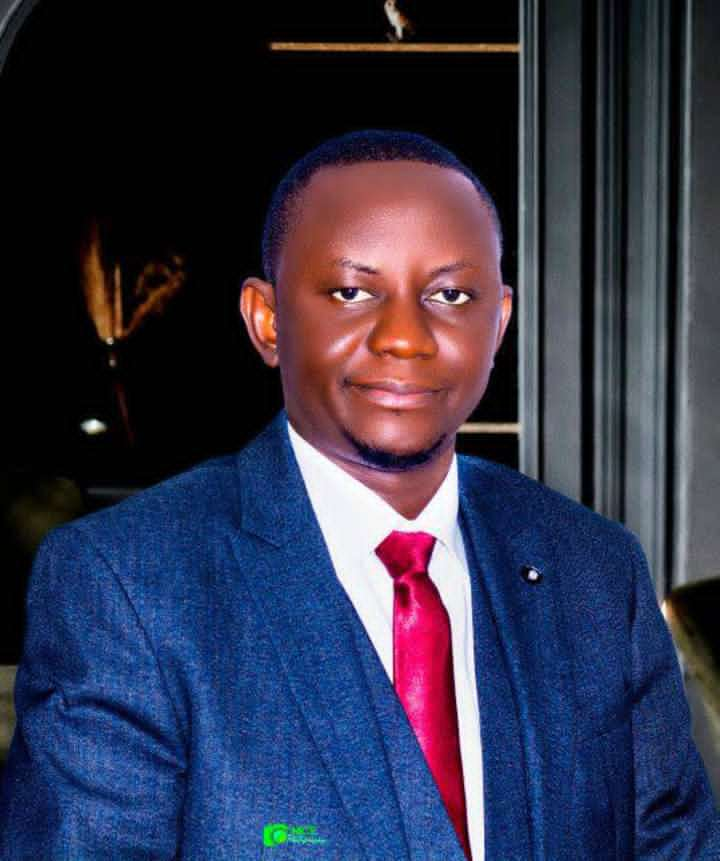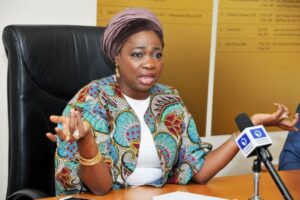
Taraba Govt offers automatic appointments to medical corps members
In this interview with Deputy Business Editor, Nigerian NewsDirect, MATTEW DENIS, the Commissioner of Health for Taraba State, Dr. Bordia Garsheya Buma, highlights Governor Agbu Kefas’s achievements in the health sector.
What are the top priorities for improving healthcare in Taraba state?
First and foremost, our aim is to ensure that all the indigenes and people who live in Taraba state have access to universal health coverage regardless of where they live and educational status and political inclination.
We want everybody to have uninterrupted access to qualitative healthcare delivery. We know that to achieve this feat it’s not going to be easy considering the fact that the economic status of the people are not the same. Some can afford to pay for their services while many cannot. We felt one of the best ways is to have a comprehensive insurance package and we started achieving that.
We used to have insurance for the vulnerable people in the society where we have support from basic healthcare provision funds from the federal government where one percent of the revenue derivation is set aside to cater for the vulnerable people. But that is a section of the total population, even the vulnerable people are not able to cover everybody.
I think the vulnerable population of Taraba state is more than 21,000 which is insignificant when you consider the population of 3.8 millions as the total population of Taraba state. We want to expand this figure of the vulnerable as in December last year we brought it to about 60,000 and today we have registered up to 80,000 apart from the fact that we also got some Non-Governmental Organisations and people to support us, like prohealth.
They plan to support a section of the people, UNICEF also supported these people all in the name of expanding this population. We also work to introduce the formal sector of insurance, that is, the civil servants and all the people who earn a salary so that they can be incorporated into the insurance package. Our major problem has been out of the pocket payment at the hospital because sometimes at the middle of the month, you will realise that people don’t have money, despite the fact that they have reasons to go to the hospital. So this insurance will be able to cover for such people to insure that they have uninterrupted qualitative healthcare regardless of whether they have money or not.
How do you plan to address shortage of healthcare professionals especially in the rural areas as the ‘Japa syndrome’ ravages the nation?
The issue of human resources for healthcare is a global phenomenon which is not restricted to Nigeria. Everywhere you go you will realise that there are shortages of manpower. So we are aware of the factors that push people out of Nigeria to seek greener pastures elsewhere. We are also aware of the pull factor, for example, insecurity, better salary pay and assurance for the feature among others.
With the knowledge of these we started improving the welfare package of the people and solving insecurity problems. We developed a short term plan as well as a long-term plan. For the short term plan we had discussions with the Governor and he approved us to employ staff at any time we deem necessary. We even realised that even if we advertise today in the media we will see nurses but won’t see Doctors because we get approval to recruit doctors at any time too. So when using those Corp members posted to the state for NYSC, we offer them automatic appointment to ensure that they remain with Taraba state to work with us for the meantime, while we sort out this crisis of shortage of medical doctors.
In the long-term plan, on the other hand, we are collaborating with Taraba State University to start training medical students. Just recently the nursing council visited the school and has achieved 100 percent accreditation for the nursing program.
What strategies will you implement to reduce issues of maternal and child mortality rate?
Again, this is a significant issue affecting not just Taraba State, but also widespread across the Northeast and Northwest regions of the country, where maternal mortality rates are alarmingly high. As a government, we recognise that improving basic healthcare services is crucial to tackling these challenges effectively. Therefore, our current focus is on enhancing primary healthcare, especially for those in rural areas, where access to healthcare is most limited.
To address the issue of maternal mortality, one of our key initiatives has been the procurement of 168 ambulances, each designated for every ward in the state. This strategic investment aims to minimise delays in transporting patients to hospitals. Often, the first delay occurs in the decision to seek medical care, and even after that decision is made, access to transportation can be a significant barrier. By providing ambulances at the grassroots level, we have eliminated the transportation delay from patients’ homes to healthcare facilities. This is why the Governor has emphasised the critical importance of these ambulances in ensuring prompt and efficient healthcare delivery to the people.
What measures is the state government putting in place to combat infections like Malaria, Polio, Cholera, etc?
Infectious diseases are recurring phenomena that can be seasonal. Recently, there was a Cholera outbreak reported in several states across the country. In Taraba, there was an initial positive result from a rapid diagnostic test for one patient, but this is not confirmatory. I immediately mobilised our team to send samples for further testing, and we are awaiting the results to determine if it is indeed a case of cholera.
Generally, preparedness before outbreaks of such infections is crucial. We have received support for our cholera response efforts and have trained our staff to be vigilant in identifying and responding to such diseases promptly. Public awareness campaigns, particularly through the media, are also underway to educate people on preventive measures against cholera.
What is the plan of the Taraba state Government for improving healthcare infrastructure like the hospitals, clinics?
The truth is that instead of constructing new healthcare facilities, our focus has been on upgrading existing ones throughout the state. The exception is Ussa local government, where we have constructed a new facility. We’re improving on the existing facilities to ensure that they have the right diagnostic tools and manpower so that level of service delivery can be enhanced for the people.
How will you ensure transparency and accountability in governance?
I believe that in life, if you place something in a vacuum, the tendency of turning towards the negative side is high. This applies to human behaviour as well. Unsupervised programs can lead people to act in abnormal ways. However, with proper checks and balances in place, we can guide and correct behaviour, prompting individuals to reconsider negative impulses. Our focus now is to strengthen supervision and monitoring measures to ensure accountability and improve service delivery.
What is the level of collaboration between Taraba State Government and stakeholders like WHO, UNICEF, NGOs among others?
We have a cordial relationship and appreciate the efforts of the various stakeholders in the state. All we are trying to do is to ensure that there is no duplication of their activities or functions. We must know what you are doing in the state so that other NGOs coming will not repeat the same thing but be sent to other aspects lacking in the state.
What are some of your challenges?
Well, there is no system that is 100 percent perfect. We know that we are not yet where we want to be. In fact, the dream of the Governor in the healthcare sector is huge and we’re still working to achieve the peak. However,the major challenge is inadequate funding because if we have enough funding I can assure you that we’ll be able to transform Taraba state within one year. However, we are trusting God and being optimistic looking for alternative funding, we are also looking inward to see how we can develop the Agricultural, mining sector all with the aim of improving revenue for the government for the people to benefit.
What can you say about the proposed award nomination for your Governor as the Governor of the Year in Education and Health sectors?
Well, I’m not surprised this is coming from a reputable Newspaper (Nigerian NewsDirect) because I know what my principal has done in these two sectors which are part of the five fingers agenda. The Governor has committed a lot of money, time and resources for these two sectors. This is actually to show that some people somewhere are recognising the hard work in these sectors. And I want to say that this is a catalyst for us to spur us to do more and this is a welcome development.




